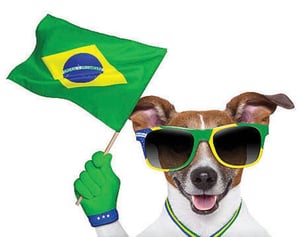 The Svalbard (Spitsbergen) Treaty of 1920 was ultimately signed by 45 nations. For some reason they all felt that the Svalbard Arctic Archipelago demanded the world’s attention. It is designated a “visa-free zone.” Anyone can visit without a visa. Svalbard is administered by Norway but belongs to no one country. Why countries such as New Zealand, Monaco, Latvia, Egypt and the Dominican Republic signed the treaty is beyond me. What’s in it for them? Svalbard has minerals, coal and has seen an uptick in tourism including the Dark Season Blues Festival. It is cold and desolate there.
The Svalbard (Spitsbergen) Treaty of 1920 was ultimately signed by 45 nations. For some reason they all felt that the Svalbard Arctic Archipelago demanded the world’s attention. It is designated a “visa-free zone.” Anyone can visit without a visa. Svalbard is administered by Norway but belongs to no one country. Why countries such as New Zealand, Monaco, Latvia, Egypt and the Dominican Republic signed the treaty is beyond me. What’s in it for them? Svalbard has minerals, coal and has seen an uptick in tourism including the Dark Season Blues Festival. It is cold and desolate there.
Perhaps the rationale of a visa-free zone is to encourage visiting. It can get lonely at the top of the world in January. No loneliness in Brazil. No major winter in Brazil. No visa-free zone in Brazil. No yours truly in Brazil.
225 East 41st Street in New York City is an address that I have never visited. I should have made the excursion or someone should have told me to do so, at least before June 27, 2017. The Brazilian Embassy is located there. You need to visit the embassy to get a visa, but not two hours before your scheduled flight to Sao Paulo, Brazil. Never made it there.
The word “visa” is in the bottom 30 percent of common usage according to the Merriam-Webster Dictionary. Clearly, the administration who organized the Brazil meeting was doing its very best to uphold the lowly status of the word “visa.” The word was first used in 1831. 186 years later I wish someone had mentioned the word “visa” to me.
Brazil is the only South American country that requires US citizens to have a visa. I guess they don’t trust us. There are currently 195 countries in the world. US citizens can enter 166 of them without a visa. Only 15 percent of countries in the entire world require US citizens to have a visa. Brazil is in that 15 percent, so I will visit 224 East 41st Street before next year’s meeting and get my visa, if they issue one to me after the Brazilian authorities read this. In any case, I will not go until you and I read this issue of VEIN.
Our first visit is to Hawaii, no visa required, for the next installment of our Mentors Who Made Me series. Dan Monahan and Elna Masuda shed light on one of our founders. Do not underestimate the impact Bob Kistner has had and continues to have on the venous world. Many of you have heard me when giving talks at meetings include words to live by: “Respect the Elders, Embrace the New, Encourage the Improbable and Impossible, Without Bias.” Bob is someone to respect.
As an addendum or denouement, the first Mentors Who Made Me article was about my mentor, Syde “Abe” Taheri. He died July 5, 2017 at the age of 90.
Industry members have contributed two articles to VEIN this time. Tim Demers enlightens us on the use of compression pump therapy for venous issues.
Morgen Carroll, a person with excellent insight into the “big picture,” takes us through the steps and missteps that can occur when introducing new technology into a medical market.
From the physician’s viewpoint our cover story shares the thoughts of three practical practitioners: Haraldur Bjarnason (Iceland), Sergio Gianesini (Italy) and Paul Pittaluga (France). All of these countries do not require a visa to visit—Brazil take note. If it is good enough for Iceland, Italy, France and the Svalbard Archipelago, it should be good enough for you. Anyway, Sergio and Paul help us understand where CHIVA and ASVAL fit in.
Haraldur gives us a dispassionate (positive term in this case) review of the ATTRACT Trial. Thus far no one needs a special certificate to incorporate these techniques into clinical practice. That is because we are not dogs.

Just when you thought you were done with certification–for yourself, your vascular lab and your vein center–there is a growing movement to certify your dog. Not for vein treatment, but to live with you in an apartment, co-op or condo. More states (42) have endorsed certifying a dog’s behavior than requiring vascular lab certification. Like the IAC, the AKC (American Kennel Club) has jumped on the certification bandwagon. They have the Canine Good Citizens Program which certifies a dog’s behavior.
Last year, 65,000 graduated and were accredited as good citizens. Interestingly, they don’t require certification as good citizens for the dog’s owner. Being a good canine citizen is only part of your dog passing the rigorous requirements of co-op boards. Some need letters of recommendation, a personal dog interview and even DNA testing to prove your dog’s pedigree. Doing neat doggy tricks doesn’t hurt your chances either.
It is easier to have any doctor call themselves a vein specialist and treat real people than getting your dog into certain condos. We should take a lesson from them. They are the ones who ultimately issue the visa to your dog so they can enter co-op country.
The visa for Brazil doesn’t seem that onerous now. Brazil doesn’t require that I do tricks or have DNA testing, at least not yet. I will find out when I visit 225 East 41st with my passport and AKC Good Citizen certification in hand next year, just in case. Woof, woof.


